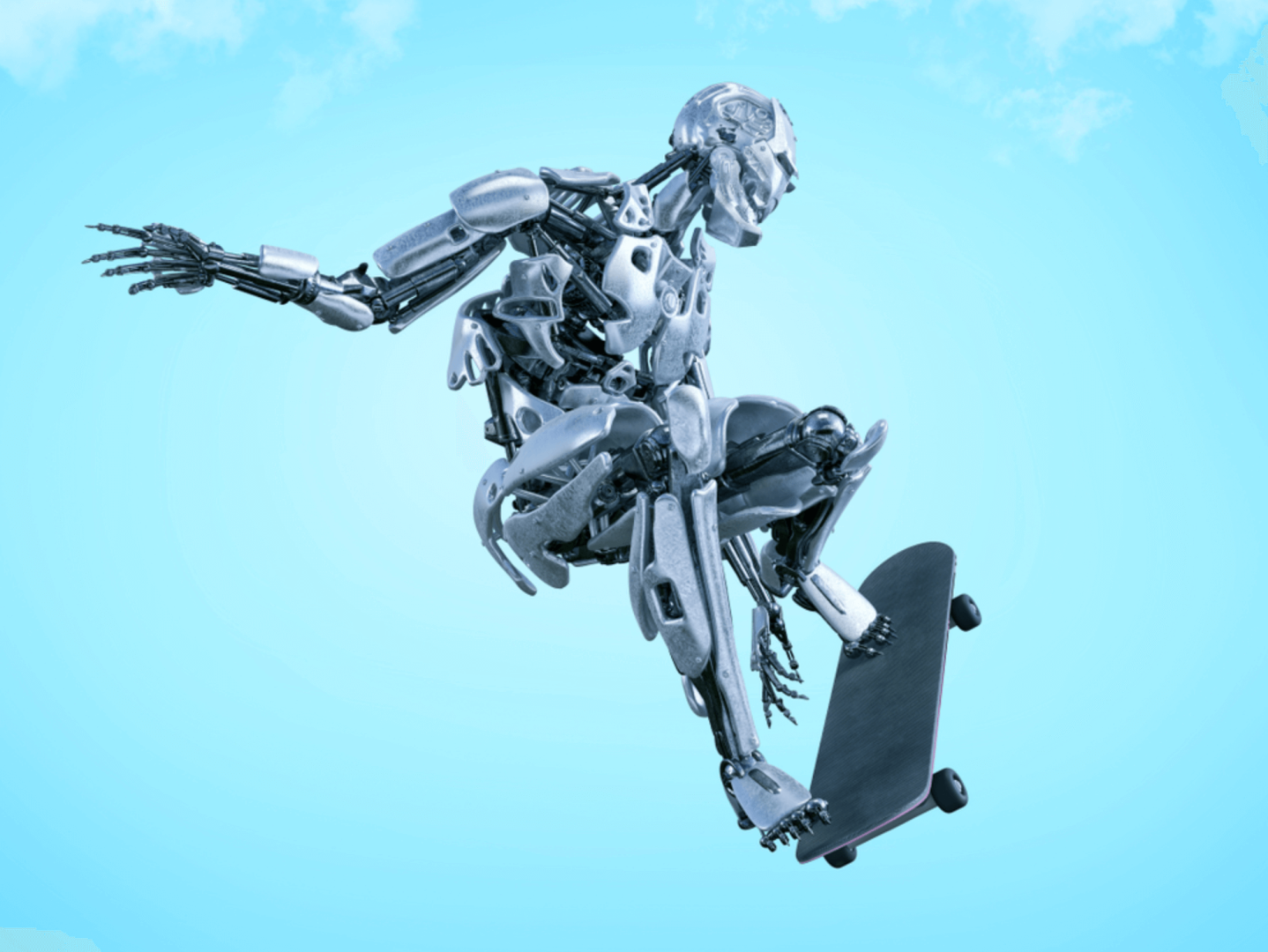Comments
- No comments found

In today's fast-paced world, organizations are looking for ways to streamline their hiring procedures and effectively locate the finest individuals.
Artificial intelligence (AI) is a vital tool that has evolved in recent years. Regarding hiring, AI technology may help with everything from speeding up candidate screening to decreasing bias and increasing overall candidate experience. Businesses may optimize their recruitment strategies and make data-driven decisions by harnessing AI's capabilities, resulting in more effective and successful hires. In this post, we will examine why AI should be considered for hiring, emphasizing its potential to revolutionize how organizations identify and pick talent.

The use of artificial intelligence technologies and algorithms to expedite and improve various parts of the employment process is referred to as AI in hiring. It entails applying machine learning, natural language processing (NLP), data analytics, and other artificial intelligence (AI) tools such as to automate activities, analyze candidate data, and make data-driven hiring decisions. AI in hiring can be used at several stages, including resume screening, applicant sourcing, interview scheduling, candidate evaluation, and even onboarding. Organizations hope to improve the efficiency, objectivity, and effectiveness of their recruitment operations by harnessing AI while minimizing human bias and subjectivity.

There are numerous reasons why adopting AI for hiring can be advantageous. Here are some significant benefits:
According to Vikram Seth, CEO of Ducknowl, "Efficient screening is one of the primary benefits of employing AI in hiring". When dealing with a large volume of applications, traditional resume screening can be a time-consuming process. AI-powered screening systems can automate this task, reducing the time and effort necessary dramatically. Artificial intelligence algorithms can quickly analyze resumes and applications, extracting pertinent information such as work experience, education, talents, and credentials. These algorithms can be trained to recognize keywords, phrases, and patterns that correspond to job posting requirements.
AI algorithms may develop a shortlist of the most qualified candidates by matching candidate profiles to job descriptions, saving recruiters and hiring managers considerable time. Furthermore, AI screening technologies can prioritize applications based on predetermined criteria, such as specific abilities or years of experience, ensuring that the best candidates receive the most attention. Rather than spending hours on manual screening, recruiters can focus their efforts on reviewing and engaging with the top applicants.
Another big advantage of employing AI in hiring is enhanced candidate matching. AI algorithms can analyze and match job requirements with candidate profiles accurately and objectively, resulting in better recruiting decisions. AI systems can use machine learning techniques to find trends and success indicators based on past data.
AI algorithms can learn what attributes and skills are most likely to contribute to success in a particular role by analyzing prior recruiting outcomes and employee performance data. This allows the system to evaluate candidates based on characteristics other than traditional criteria like education and work experience. Furthermore, AI algorithms may evaluate candidates based on a wide range of data points, including talents, certifications, industry-specific expertise, and even soft skills. This all-encompassing approach to applicant matching can lead to more exact and accurate assessments, increasing the likelihood of finding the best fit for a certain role.
Organizations can save time and effort in manually evaluating resumes and qualifications by automating candidate matching with AI. Because AI algorithms make decisions based on objective facts and preset criteria, they can also lessen the potential of human bias impacting the selection process. As a result, organizations may make better informed and more objective hiring decisions that are further aligned with the job needs, resulting in better overall recruitment outcomes.
Using AI in hiring can help greatly reduce prejudice in the recruitment process. Human prejudice, whether conscious or unconscious, has long been a source of difficulty in traditional recruiting practices. AI technologies offer a viable solution to this problem. AI algorithms evaluate candidates using objective criteria and qualifications, eliminating human subjectivity and potential prejudices based on aspects such as gender, color, ethnicity, or age. These algorithms assess candidate suitability using data-driven insights and preset measures, delivering fair and unbiased judgment.
Organizations can combat prejudice in a variety of ways by utilizing AI. To begin, artificial intelligence algorithms can anonymize applicant data by deleting personally identifiable information from resumes and applications. Additionally, biased wording in job descriptions and postings can be found and removed using AI-powered techniques. To ensure diversity and draw a wider range of applications, they can advise different wording.
The use of AI in hiring generally lowers the possibility of unconscious bias and encourages equity and diversity in the selection process. Organizations may create more diverse workforces by using objective and data-driven evaluations that prioritize talent and credentials above unimportant human characteristics.
The production of data-driven insights is one of the major benefits of adopting AI in hiring. AI technology can analyze vast amounts of data gathered throughout the recruitment process, giving organizations useful information and actionable insights. AI systems can uncover patterns and trends by collecting and analyzing data on candidate profiles, application sources, screening results, interview outcomes, and hiring decisions. AI can analyze data to determine the best sourcing channels, job boards, and recruitment platforms for attracting high-quality individuals. It can also reveal which evaluation methods or interview questions produce the greatest results, allowing organizations to fine-tune their recruitment strategy accordingly.
AI algorithms can uncover trends that correspond with successful hires by reviewing past data on candidate qualifications, experience, and performance. This enables organizations to forecast the probable performance of individuals based on objective facts, allowing for better-informed decision-making. AI algorithms may examine diversity metrics within the candidate pool, allowing organizations to quantify and monitor their progress in fostering diversity and inclusion. The findings of this investigation can help organizations develop measures to enhance diversity and address inequities.
Using AI in hiring provides the benefit of increased objectivity in the recruitment process. Subjective factors such as personal biases, emotions, or unconscious preferences can all influence human decision-making. AI technologies assist in overcoming these constraints and introducing a higher level of impartiality in applicant evaluation. Candidates are evaluated by AI algorithms using predefined criteria and objective metrics. They evaluate qualifications, talents, and experience unbiased by personal prejudices or subjective judgments. This uniformity in evaluating candidates results in more dependable and fair appraisals of their abilities and potential.
AI creates fair possibilities for all candidates by removing human subjectivity. It ensures that each candidate is evaluated on the basis of their relevant qualifications and merits rather than on external circumstances that should not have an impact on their suitability for a role. Furthermore, AI systems can be taught on historical data to learn from previous successful employment outcomes. This enables them to spot trends and success indications that human evaluators may miss. AI algorithms that rely on data-driven insights can provide a more objective assessment of a candidate's perspective fit for a post.
AI's increased impartiality in recruiting aids organizations in developing fair and transparent recruitment procedures. It eliminates prejudices, maintains consistent evaluation criteria, and fosters meritocracy. This, in turn, encourages a varied and inclusive workforce in which individuals are chosen based on their skills and talents, resulting in improved overall organizational performance.
AI-powered algorithms can rapidly screen a high volume of resumes and applications, eliminating the need for recruiters to perform human screening. This technology saves recruiters time and allows them to focus on engaging with the best candidates. Organizations can speed up the hiring process and close productivity gaps created by protracted vacancies by lowering the time spent on screening. AI can help recruit people from a variety of sources, including job boards, social media platforms, and professional networks. Organizations can use AI solutions to automate applicant identification and shortlisting based on established criteria, hence streamlining the candidate sourcing process. This saves time and effort spent on finding qualified individuals, resulting in faster access to competent people.
AI can help to streamline the interview scheduling process by automating the coordination of interview slots between candidates and interviewers. AI-powered systems can analyze availability, preferences, and time zones to recommend the best interview schedules while minimizing back-and-forth contact. This saves administrative time and enhances interview efficiency. Biassed recruiting decisions or poor applicant matches might result in significant consequences for organizations. AI algorithms can assist in decreasing bias by focusing on objective criteria and credentials. Organizations can prevent costly recruiting blunders and associated costs such as turnover costs, rehiring charges, and potential legal issues by enhancing the accuracy of candidate selection.
In summary, introducing AI into the hiring process has many advantages that can transform how businesses find and hire talent. A significant number of resumes and applications can be quickly and effectively analyzed and evaluated thanks to the usage of AI in screening. It also enables better candidate matching by utilizing machine learning algorithms to spot successful trends and make informed judgments.
By eliminating subjective judgments, evaluating candidates based on objective criteria, and fostering fairness and diversity, AI also lessens hiring bias. A more equitable outcome is ensured by the increased impartiality of AI algorithms, which guarantee that candidates are evaluated purely on their qualifications and merits. Additionally, AI offers priceless data-driven insights that help recruiters optimize their strategy, make better decisions, and streamline the entire hiring process.
Luke Fitzpatrick has been published in Forbes, Yahoo! News and Influencive. He is also a guest lecturer at the University of Sydney, lecturing in Cross-Cultural Management and the Pre-MBA Program. You can connect with him on LinkedIn.
Leave your comments
Post comment as a guest